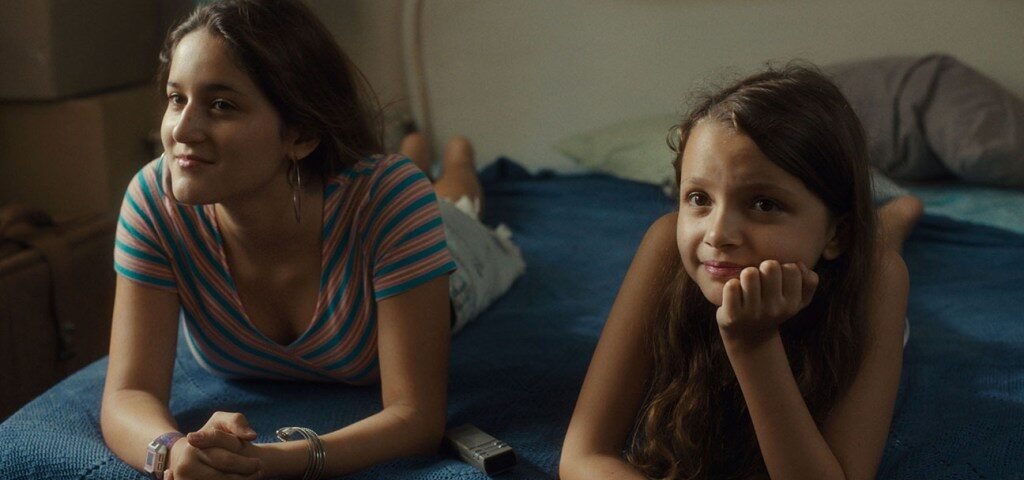


‘Porcelain War’ Review: Intimate Reflection on Making Art in Wartime Ukraine Is Beautiful but Frustrating
February 6, 2024


‘Ponyboi’ Review: River Gallo and Dylan O’Brien Star in a Sexy, Sweaty New Jersey Fever Dream
February 8, 2024In Klaudia Reynicke’s third feature, a father reconnects with his daughters during a tumultuous summer in Lima.
Reinas
A compact feature filled with moments of understated charm.
Klaudia Reynicke’s compact feature Reinas deals in intimate moments with an understated charm.
An excerpted television news report from the ’90s functions as a prologue, detailing a country in crisis. Peru’s minister of the economy announces that in the next 24 hours, the price of milk will jump from 120,000 Peruvian intis to 330,000, and the cost of sugar, now 150,000 intis, will double. In the middle of this throttled economy, Carlos (Gonzalo Molina) drives his taxi around the city.
The Carlos that Aurora and Lucia, two mild-mannered girls, know is unreliable. At the start of Reinas, Carlos arrives late to eldest Aurora’s 18th birthday party. He barges in with a mouth full of lies — excuses for his tardiness that land like apologies for his general absence. When asked by the youngest, Lucia, about his whereabouts, Carlos, without missing a beat, says he’s been in the jungle fighting crocodiles. The girls can only muster disbelieving looks. Later at the party, when Carlos regales attendees with a harrowing story of near death and a car bomb, the audience has been primed to react the same way.
As Carlos spends more time with his girls, the illusion of who he wants to be is replaced with the reality of who he is. Reynicke shapes a portrait of a man making an effort. Some of the strongest and most charming moments in Reinas take place around two beach trips Carlos informally organizes at the behest of Lucia and Aurora. In these moments, he assumes the caretaking role he once abandoned. The beach excursions are imbued with hope and possibility. They take on a dreamy quality with ethereal choral music playing over scenes of Carlos teaching Lucia how to ride a wave or bartering with roadside hawkers to get the girls lunch or new swimsuits.
As played by Molina, Carlos is a figure who bets on his casual charm to mask his noncommittal nature and penchant for dishonesty. But as the character renews his commitment to his daughters, we can see him trying to fight this reflex and act more authentically. Molina teases out this shift, which helps mask lingering questions about Carlos’ employment, his position on the Peruvian political spectrum and the history between him and Elena.
Elena, played with understated force by Lindo, doesn’t want to raise her children in this environment. She invites Carlos back into their lives in part because she needs him to sign their daughters’ travel papers. As Carlos forges new bonds with Lucia and Aurora and subtly tries to sabotage the plan, we see Elena run around Lima preparing for their upcoming trip.
In Reinas, Reynicke offers a quietly sad portrait of an unexpected effort to make a family feel whole. Realizing that he might never see his daughters again, a reinvigorated Carlos recommits to them with quality time and tokens of affection. Even the way he refers to them — his preferred term of endearment is “reinas” — changes, feeling more weighted and sincere.
Reynicke also dedicates screen time to depicting Lucia and Aurora’s relationship. Lucia remains adamant about going wherever her mother goes, but Aurora has her own priorities in Lima. The scenes of the sisters negotiating their own impending departure are steeped in fine-tuned devastation. By the end of Reinas, we start to see that it’s not only Carlos who needs to believe in a different reality.





